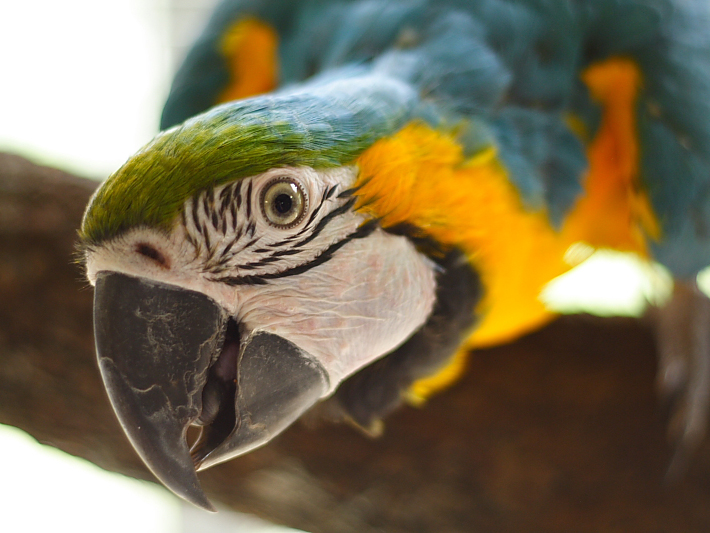Birds Of A Feather Flock Together: Social Behaviors Of Birds, Part 1
Pet owners often form close bonds with their animal companions. Owners of feathered friends might be pleased to learn that this relationship is reciprocal, as birds can form strong bonds with their owners and other non-human members of their household.

Debra Turner, aviary manager of the Schubot Center for Avian Health at the Texas A&M College of Veterinary Medicine & Biomedical Sciences, says that different species of birds exhibit different social behaviors.
“Parrots, chickens, canaries, and pigeons are all very flock oriented. Raptors, like hawks and owls, are not as social or flock oriented,” added Dr. Sharman Hoppes, a professor emerita affiliated with the Schubot Center.
Since most birds are prey animals, they tend to be more alert and nervous around new people and elements in their environment. However, Hoppes says that pet birds hand-raised by humans will often become imprinted on their owner and behave differently.
“Birds see their owners as part of the flock. This can lead to a very close bonding relationship that is fun and entertaining in our homes,” Hoppes said. “But in some cases, birds may see their owner as a mate; this stimulates abnormal reproductive behavior affecting nesting, chronic egg-laying, and territorial behaviors.
“In some cases, an unhealthy relationship with the owner can lead to health issues such as cloacal prolapse (a protrusion of the reproductive tract) and hypocalcemia (calcium deficiency) from laying too many eggs,” she said.
Another potential issue that may arise from the bond between bird and owner is that they may become protective of and bite individuals who get too close to their imprinted human. They may also become protective of their cage or become defensive if they feel threatened, also leading to biting.
Flock-oriented birds have evolved to live with other members of their species and form social relationships with their fellow feathered friends. If only one bird is adopted, being alone all day in a cage may become stressful.
“Luckily, our birds will often see people and other pets, such as dogs and cats, as part of their flock, so having other animals in the home and lots of activities for them to do (such as enrichment, toys, foraging for food, etc.) will help keep them busy when alone,” said Hoppes.
Although our feathered friends may seem very different from the furry pets most people are accustomed to, the relationships they form with their owners are strong and rewarding bonds that last a lifetime.
Pet Talk is a service of the College of Veterinary Medicine & Biomedical Sciences, Texas A&M University. Stories can be viewed on the web at vetmed.tamu.edu/news/pet-talk. Suggestions for future topics may be directed to editor@cvm.tamu.edu.


